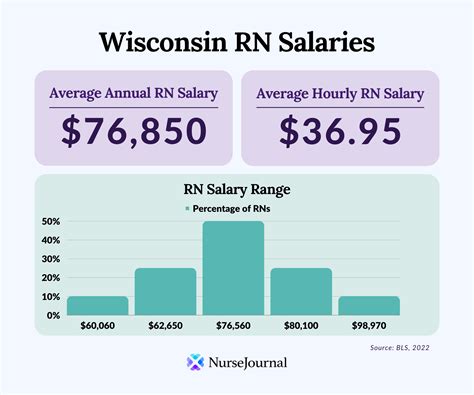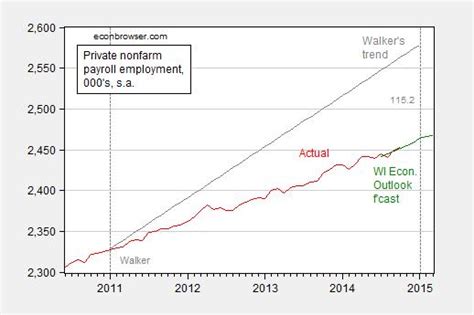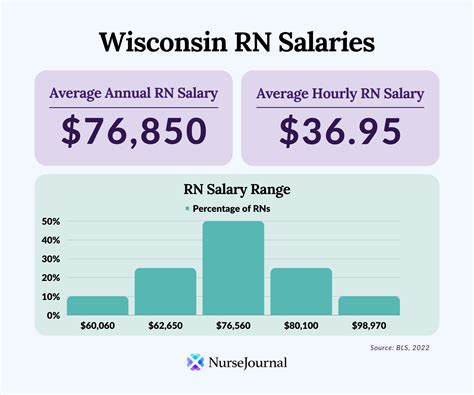Considering a career move to America's Dairyland? Wisconsin offers a unique blend of vibrant cities, beautiful natural landscapes, and a robust, diverse economy. But what can you expect to earn? Understanding the average salary in Wisconsin is a critical first step for anyone looking to build a career in the state. While a single number can be a useful benchmark, the reality of your earning potential is far more nuanced.
On average, professionals in Wisconsin can expect to earn an annual salary ranging from $61,000 to $66,000. However, this figure is just the starting point. Factors like your industry, experience, education, and exact location within the state can cause your potential salary to vary significantly. This guide will break down the data to give you a clear picture of what you can earn in Wisconsin.
Understanding the Wisconsin Economy: A Snapshot


Before diving into the numbers, it's helpful to understand the economic landscape you'd be entering. Wisconsin's economy is not a monolith; it's a diverse engine powered by several key sectors. Historically known for manufacturing and agriculture—which remain vital—the state has seen significant growth in:
- Healthcare: Home to major health systems and research facilities.
- Technology: With growing tech hubs in Madison and Milwaukee.
- Insurance and Finance: A major hub for the insurance industry, particularly in Madison and Milwaukee.
- Advanced Manufacturing: High-tech production in machinery, electronics, and food products.
This economic diversity means there are opportunities across a wide spectrum of professions, from entry-level roles to highly specialized executive positions.
Average Salary in Wisconsin: The Data


Different authoritative sources provide slightly different figures for the average salary, based on their unique data collection methods. Looking at multiple sources provides the most comprehensive view.
- The U.S. Bureau of Labor Statistics (BLS), in its May 2023 Occupational Employment and Wage Statistics report, states that the mean annual wage for all occupations in Wisconsin is $61,560. The median wage, which is often a more accurate representation as it isn't skewed by extremely high earners, was $48,460 per year.
- Salary.com, which aggregates real-time, HR-reported compensation data, lists the average base salary in Wisconsin as $66,201 as of May 2024. Their data suggests a typical range falls between $51,192 and $81,399.
- Payscale, which relies on user-submitted salary profiles, reports an average salary of $66,000 per year as of June 2024.
Key Takeaway: A reasonable estimate for the average salary in Wisconsin is in the low-to-mid $60,000s. However, entry-level positions may start closer to the $35,000-$45,000 range, while experienced professionals in high-demand fields can easily command salaries well over $100,000.
Key Factors That Influence Salary in Wisconsin


The "average" salary is just a midpoint. Your personal earning potential will be determined by a combination of the following key factors.
###
Level of Education
As in the rest of the country, there is a strong, proven correlation between educational attainment and earning potential in Wisconsin. Higher degrees open doors to more specialized, higher-paying roles. National data from the BLS clearly illustrates this trend:
- High School Diploma: Median weekly earnings of $853
- Bachelor's Degree: Median weekly earnings of $1,432
- Master's Degree: Median weekly earnings of $1,661
- Doctoral/Professional Degree: Median weekly earnings of $2,080+
This national pattern holds true in Wisconsin, where jobs requiring advanced degrees in fields like medicine, law, and engineering are among the highest-paid.
###
Years of Experience
Experience is one of the most significant drivers of salary growth. Employers pay a premium for professionals who can solve problems, lead teams, and operate with minimal supervision. Here's a general breakdown of how experience can impact your salary in Wisconsin:
- Entry-Level (0-2 years): Professionals starting their careers can expect to earn on the lower end of the salary spectrum for their field, often 20-30% below the overall average.
- Mid-Career (3-8 years): With a proven track record, individuals can expect to earn at or slightly above the average salary. This is often when significant salary growth occurs.
- Senior/Experienced (8+ years): Senior professionals, specialists, and managers with extensive experience can command salaries at the top end of the range, often 30-50% or more above the state average.
###
Geographic Location
Where you work in Wisconsin matters. Major metropolitan areas with a higher cost of living and a greater concentration of large corporations and high-tech industries tend to offer higher salaries.
| Metropolitan Area | Average Annual Salary (BLS, May 2023) | Notes |
| :--- | :--- | :--- |
| Madison, WI | $66,610 | High concentration of government, tech, biotech, and healthcare jobs. |
| Milwaukee-Waukesha, WI | $64,330 | The state's largest economic center with major corporate headquarters. |
| Green Bay, WI | $56,790 | Strong in manufacturing, transportation, and healthcare. |
| Appleton, WI | $57,000 | Hub for paper/manufacturing and a growing service sector. |
| Nonmetropolitan Areas | $49,000 - $54,000 | Salaries are typically lower due to a lower cost of living and different industry mix. |
###
Company Type and Size
The type of organization you work for can also influence your compensation.
- Large Corporations: Companies like Northwestern Mutual, Johnson Controls, Kohl's, or Epic Systems often have more structured compensation plans, more extensive benefits packages, and higher base salaries for professional roles.
- Startups and Small Businesses: While base salaries might be lower, they can sometimes be offset by equity, bonuses, or more rapid growth opportunities.
- Public Sector vs. Private Sector: Government and university jobs (e.g., State of Wisconsin, University of Wisconsin System) often offer excellent benefits and job security, though their base salaries may sometimes lag behind top-tier private sector roles.
###
Industry and Area of Specialization
This is perhaps the most impactful factor. The "average" salary blends high-paying and low-paying industries. Your chosen profession will place you in a completely different salary bracket.
Here’s a look at the mean annual wages for different major occupational groups in Wisconsin (BLS, May 2023):
- Management Occupations: $131,520
- Computer and Mathematical Occupations: $91,950
- Healthcare Practitioners and Technical Occupations: $90,810
- Architecture and Engineering Occupations: $86,410
- Business and Financial Operations Occupations: $79,850
- Production Occupations: $50,580
- Office and Administrative Support Occupations: $47,690
- Food Preparation and Serving Related Occupations: $31,510
As you can see, a software developer or a financial manager will have a vastly different earning potential than a food service worker, which dramatically skews the overall state "average."
Job Outlook in Wisconsin


The future looks promising for Wisconsin's workforce. According to the Wisconsin Department of Workforce Development (DWD), total employment is projected to grow by 5.3% from 2020 to 2030, adding more than 166,000 jobs.
The sectors with the strongest projected growth include:
- Health Care and Social Assistance
- Transportation and Warehousing
- Professional and Technical Services
This indicates strong, sustained demand for skilled professionals in these areas, which will likely support continued wage growth and ample career opportunities.
Conclusion: Your Path to a Wisconsin Career


While the average salary in Wisconsin hovers in the low-to-mid $60,000s, this figure is merely a compass, not a map. Your true earning potential is a dynamic combination of your education, experience, location, and—most importantly—your chosen industry and specialization.
For prospective students and professionals considering Wisconsin, the key takeaways are:
1. Aim High: Focus on high-growth industries like tech, healthcare, and professional services for the best salary prospects.
2. Location Matters: Target major metro areas like Madison and Milwaukee for higher earning potential.
3. Invest in Yourself: Continuing education and gaining valuable experience are the most reliable paths to increasing your salary over time.
Wisconsin offers a stable and diverse economy with a wealth of opportunities for those ready to build a rewarding career. By understanding these influencing factors, you can strategically navigate the job market and achieve your professional and financial goals in the Badger State.
